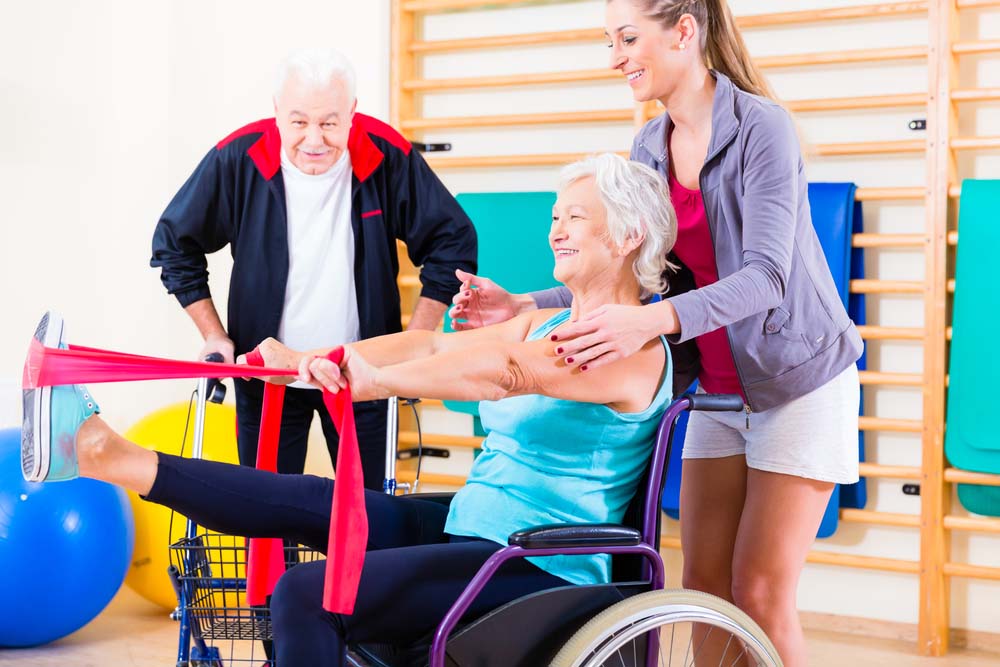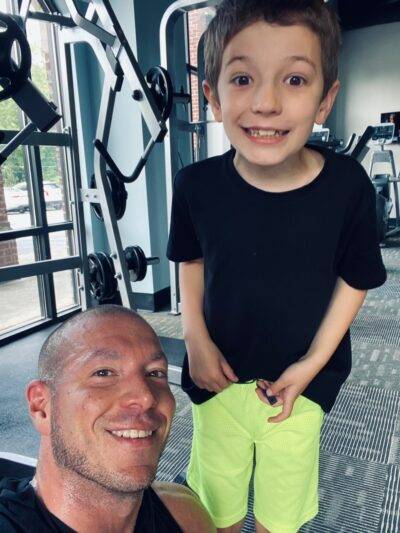Georgia Personal Training/Roswell Fitness Factory
Physical fitness is a universal goal that transcends age, gender, and ability. From Olympic athletes training for peak performance to individuals navigating daily life with special needs, the benefits of personalized physical training are immeasurable. In recent years, the fitness industry has seen a surge in services tailored for these exceptional individuals. Whether it’s Autism Personal Fitness Training, Disability Personal Fitness Training, or a multitude of other Personal Training for Special Needs, Georgia Personal Training realizes that there is a growing recognition of the significance of customized fitness programs.
In this comprehensive guide, we will explore the unique approaches, considerations, and benefits of personal training for individuals with special needs. If you are a member of the special needs community, a caregiver, or a personal trainer looking to expand your skill set, this resource is your gateway to understanding and implementing the value of tailored fitness programs.
Understanding Special Needs in the Context of Fitness
Before we dive into the specifics of training, it’s essential to lay the foundation for understanding what we mean by “special needs” in the context of physical fitness. “Special needs” is a broad term that encompasses a range of conditions or disabilities, including but not limited to autism spectrum disorder (ASD), Down Syndrome, Cerebral Palsy, and various physical and intellectual disabilities.
For individuals with special needs, physical exercise might pose challenges related to sensory processing, fine and gross motor skills, social interaction, and communication. This understanding is crucial for personal trainers entering the field of special needs fitness, as it informs the development of inclusive and effective programs that cater to the unique abilities and requirements of each client.
The Role of Personal Trainers in Special Needs Fitness
Personal trainers who work with special needs clients play a pivotal role in empowering individuals to achieve their fitness goals. Unlike traditional training, which often follows a one-size-fits-all approach, personal trainers specializing in special needs must be adept at creating and adapting programs on the fly to ensure that every session is productive and enjoyable. Effective trainers in this field are empathetic, patient, and creative. They not only possess the technical knowledge of exercise physiology and nutrition but also have a deep understanding of their client’s specific condition. Furthermore, they know how to manipulate the environment to provide sensory-friendly settings that promote success and self-confidence.
- Designing Tailored Fitness Programs – Designing a tailored fitness program for clients with special needs requires a multi-faceted, personalized approach. Here are some key components to consider:
- Initial Assessment and Goal Setting – The first step in any fitness program is to conduct a thorough assessment. For special needs clients, this may involve evaluating sensory processing patterns, motor abilities, and medical considerations. Once the assessment is complete, setting achievable, incremental goals is critical for maintaining motivation and tracking progress.
- Structuring Sessions – The structure of a fitness session can significantly impact its success. Trainers should determine the optimal length, frequency, and intensity of workouts based on individual needs. Utilizing visual schedules or techniques such as “first-then” boards can provide structure and clarity for clients who benefit from visual supports.
- Adaptation and Inclusion – Exercise adaptations can include modifying movements, utilizing assistive devices, or changing the parameters of an activity. Trainers’ adept at inclusion will understand how to modify the workout environment to accommodate different sensory needs, ensuring that every client feels comfortable and supported.
- Communication and Socialization – Effective communication is not only about giving instructions but also about building rapport and social skills. Trainers should adapt their communication style to the needs of the client, whether that means using simplified language, incorporating technology, or utilizing visual cues to facilitate understanding.
The Benefits of Personal Training for Special Needs Clients
Engaging in a personalized fitness program can offer a myriad of benefits for individuals with special needs, including:
- Improved Physical Health – Physical activity can improve cardiovascular health, strength, flexibility, and coordination, which are particularly beneficial for individuals with conditions that affect mobility.
- Enhanced Mental Well-being – Exercise is a powerful tool for reducing anxiety, improving mood, and enhancing cognitive function. For those with special needs, these mental health benefits can be especially significant.
- Increased Independence and Self-esteem – The ability to engage in physical activities independently is a significant achievement for many special needs clients and can boost their self-esteem and sense of accomplishment.
- Social Interaction and Integration – Fitness training can provide a structured environment for participants to interact with peers, building social skills and fostering a sense of community.
- Family Support and Education – Involving families in the training process can provide support and education on how to incorporate fitness into the client’s daily routine, extending the benefits beyond the gym or training session.
Best Practices for Integrating Special Needs Fitness
When integrating special needs fitness into a personal training program, there are several best practices to keep in mind:
- Continuous Education – The landscape of special needs fitness is constantly evolving, so trainers must stay abreast of the latest research, techniques, and equipment.
- Collaboration with Healthcare Professionals – Collaborating with physical therapists, occupational therapists, and other healthcare providers can provide valuable insights into a client’s needs and support a holistic approach to health and wellness.
- Establishing Safe Environments – Prioritizing safety is paramount. Trainers should be proficient in techniques for safe positioning, use of equipment, and responding to challenging behaviors.
- Celebrating Every Victory – In the world of special needs fitness, progress may come in smaller increments, making it all the more important to celebrate each achievement, no matter how small.
Case Studies and Success Stories
To illustrate the impact of personal training for special needs clients, sharing case studies and success stories can provide real-world examples of how fitness can transform lives. These stories can serve as both inspiration and evidence of the efficacy of tailored fitness programs.
Resources for Trainers and Clients
There are numerous resources available for trainers and clients in the special need’s fitness community. From online forums and support groups to specialized certifications and workshops, these resources can provide knowledge, advice, and community.
Conclusion
Personal training for special needs clients is a field filled with challenges, but the rewards are immense. By recognizing the unique abilities and requirements of each individual, personal trainers can design programs that not only improve physical health but also enhance mental well-being, foster independence, and promote social integration. The road to inclusivity in the fitness industry is an ongoing journey, and those who are dedicated to it are not just trainers — they are champions of human potential.
Georgia Personal Training Offers Programs for Special Needs
As the parents of an autistic child, providing personal training for special needs clients is near and dear to our hearts. These kids and young adults bring out the best in us and are an absolute joy to work with. More often than not, it is difficult to get a young adult with autism to stay physically active. Just getting them a gym membership won’t do the trick. Personal training sessions might be the answer.
The Roswell Fitness Factory/Georgia Personal Training
9420 Willeo Road (Suite 105)
Phone: (770) 241-1086
Email: matthewlein@bellsouth.net



 Georgia Personal Training
Georgia Personal Training